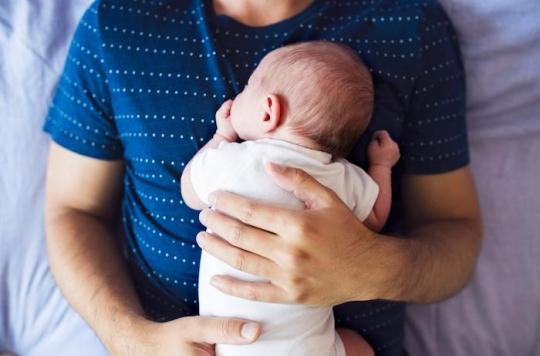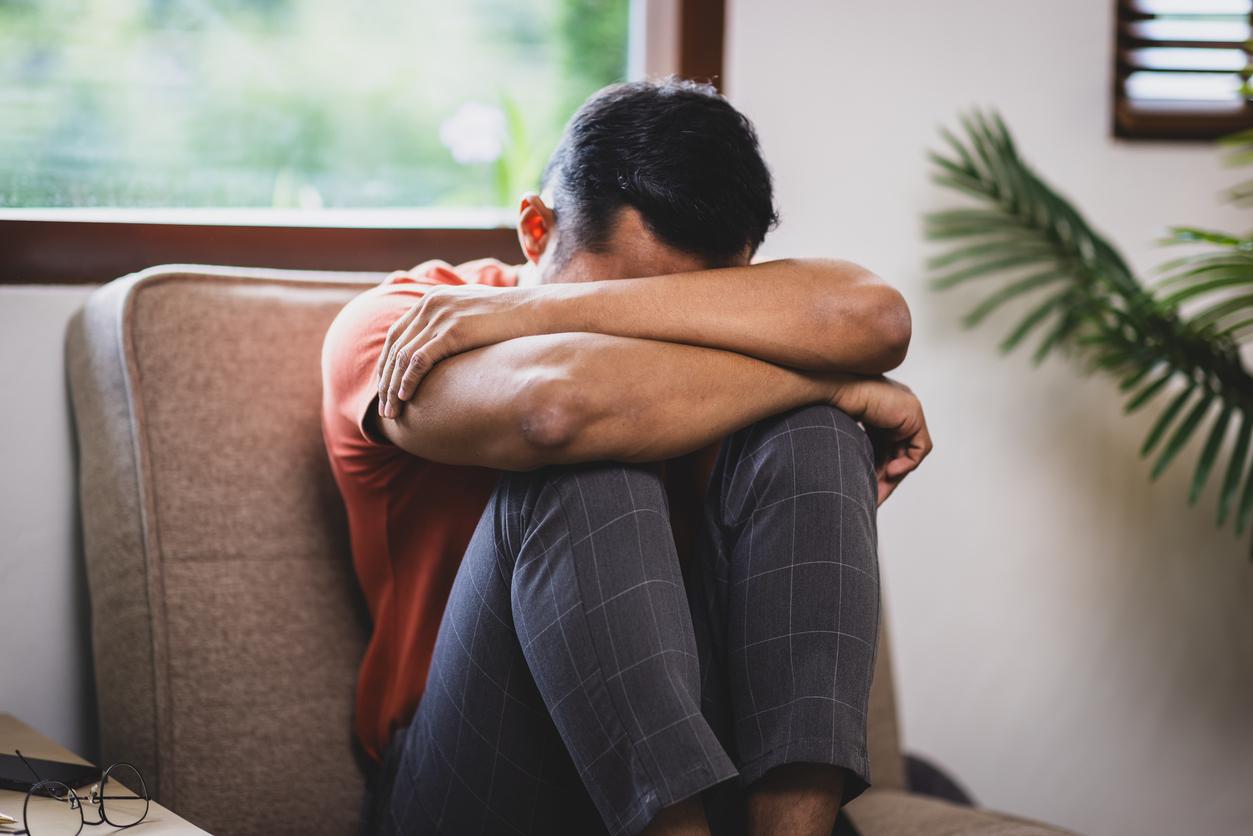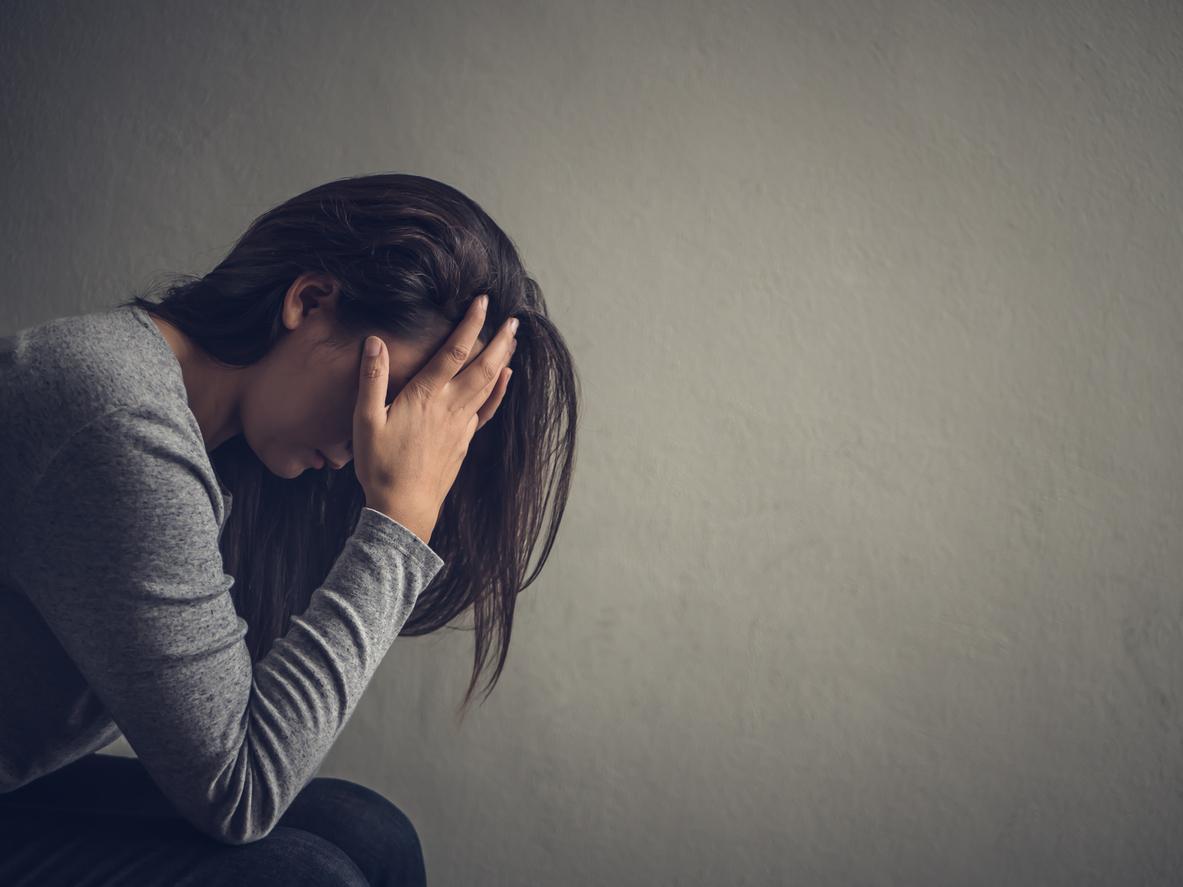A recent American study shows that the arrival of a first newborn can also impact men’s mental health. Presentation of the baby blues of young dads.

Just like women, men are susceptible to postpartum depression. Particularly because of the lack of sleep and the apprehension of being a bad parent by not understanding the needs of your child. A recent study presented by theAmerican Psychological Association (APA) and relayed by the Daily Mail shows that the rate of depression among fathers after the birth of their first child is as high as that of new mothers.
In the latter, depression is triggered by hormonal changes, lack of sleep, anxiety related to the protection and well-being of their baby, or even physical changes related to pregnancy and childbirth. According to the researchers, men are also affected emotionally by fear of taking good care of their child, lack of sleep and some uncertainty related to their role / place in the family.
The latter can indeed be confronted with a conflict of roles between the sexes, in particular if they struggle to conform to the role of father predefined by the norms of the society. They can in fact question themselves, or even feel incompetent. Having a premature baby, or having trouble sleeping, or having financial problems can exacerbate the baby blues of young dads.
Lack of sleep, the main risk factor for postpartum depression
“Much has been written about women’s pregnancy and postpartum experiences, including negative reactions ranging from clinical depression to postpartum psychosis,” says Dr. Dan Singley, of the Center for Men’s Excellence in San Diego, in the USA. “But the incidence rate of depression is similar between new mothers and new fathers. Postpartum depression can no longer be viewed primarily as a pathological variant of female reproductive processes. The existing paradigm must be changed.”
It was by carrying out a study on 447 new Swedish fathers in 2017 that the researchers made this observation. More than a quarter of them had significant levels of depression. However, if we try to screen women for postpartum depression, the mental health of fathers is rarely assessed. “Lack of sleep has been shown to be the most predictive risk factor” for depression, says Sara Rosenquist, of the Center for Reproductive Health Psychology in Cary, North Carolina. Fatigue can indeed exacerbate negative feelings that are already present.
10% of young fathers affected by postpartum depression
According to Dr Dan Singley, “about 10% of new fathers (such as adoptive mothers) suffer from postpartum depression” and “up to 18% suffer from anxiety disorders”. “Unfortunately, few psychologists receive targeted training in identifying, assessing or treating common problems in men between conception” and their child’s first birthday. Postpartum depression in one of the parents can cause difficulties within the couple and impact the well-being of the baby if it lasts too long. If this is the case, do not hesitate to consult a doctor.

.















